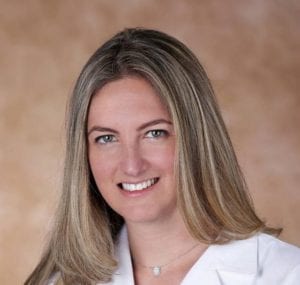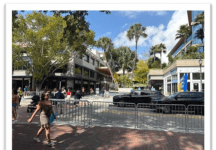
When it comes to breast cancer risk, how much does the adage, “you are what you eat” apply?
Patients are often concerned about which foods may increase their risk of breast cancer. With the exception of alcohol, studies have not shown a strong link between a particular food and breast cancer risk. Below, I summarize the current status pertaining to foods I am commonly asked about and breast cancer risk:
- Sugar: While cancer cells use sugar for growth, cutting out sugary foods from your diet has not been shown to lower your chance of developing cancer. Sugar may still indirectly influence your risk of breast cancer by contributing to obesity. Obesity has been linked to an increased risk of breast cancer, particularly in post-menopausal women. This may have to do with increased estrogens and inflammatory mediators that can contribute to breast cancer in obese patients. Conversely, exercise and maintaining an ideal body weight have been shown to decrease breast cancer risk. Therefore, eating a healthy, well balanced diet that is low in sugar is advised.
- Red meat: Fears over red meat and cancer risk are associated with exposure to chemicals formed when cooking meat at high temperatures and hormones in meat. However, results from most studies have found no link between meat intake and breast cancer risk. Some findings suggest substituting red meat with white meat may lower cancer risk. Since results are conflicting and there is currently no consensus regarding meat and breast cancer risk, I suggest for patients who enjoy eating red meat to do so in moderation.
- Soy: Isoflavones found in soy are plant estrogens. While high levels of estrogen have been linked to an increased risk of breast cancer, food sources of soy don’t contain high enough levels of estrogen to increase breast cancer risk. In fact, a lifelong diet rich in soy foods reduces the risk of breast cancer in women. Foods containing soy, including edamame and tofu, are healthy in moderation. In contrast, soy or isoflavone supplements, contain very high levels of isoflavones and could increase risk of breast cancer in women who have a family or personal history of breast cancer. Therefore, you should talk with your doctor before taking supplements.
- Dairy: The high fat content of many dairy products or traces of growth hormones in milk have been thought to increase breast cancer risk, although, calcium and vitamin D in dairy products may lower breast cancer risk. Data from the Nurses’ Health Study II found women who ate 2 or more servings of high-fat dairy products every day had a higher risk of breast cancer before menopause than women who ate fewer servings. Other studies have found no link between dairy product intake and breast cancer risk. More research is needed to make solid conclusions about a possible link between dairy consumption and the risk of breast cancer.
- Alcohol: Studies have consistently shown drinking alcohol on a regular basis increases the risk of breast cancer. Alcohol can increase levels of estrogen and other hormones associated with hormone receptor-positive breast cancer. Compared to women who don’t drink, women who have three alcoholic drinks per week have a 15% higher risk of breast cancer. Alcohol intake is also associated with breast cancer recurrence in women diagnosed with early-stage disease. In summary, regularly drinking alcohol can harm your health and increase breast cancer risk.
A combination of genetic and environmental factors influences breast cancer risk. Eating all of the above foods are fine in moderation, but you should avoid drinking even moderate amounts of alcohol. Unfortunately, an apple a day is not enough alone to keep breast cancer away, but it is a good start on achieving a healthy, well balanced diet.
If there is a topic you would like to hear more about pertaining to women’s health or more specifically breast health, you can message me on Facebook or Instagram @drstarrmautner.
Dr. Starr Mautner is a breast surgical oncologist at The Miami Cancer Institute, a part of Baptist Health South Florida. She received her undergraduate and medical degrees from the University of Miami and completed her general surgery training at New York Presbyterian Hospital/Weill Cornell Medical Center. Additionally, she completed breast surgical oncology research and clinical fellowships at Memorial Sloan Kettering Cancer Center. Her expertise is in the surgical management of breast cancer and she uses a multidisciplinary approach to treat a variety of patients with breast disease. In her spare time, she enjoys playing tennis and spending time with her family.






